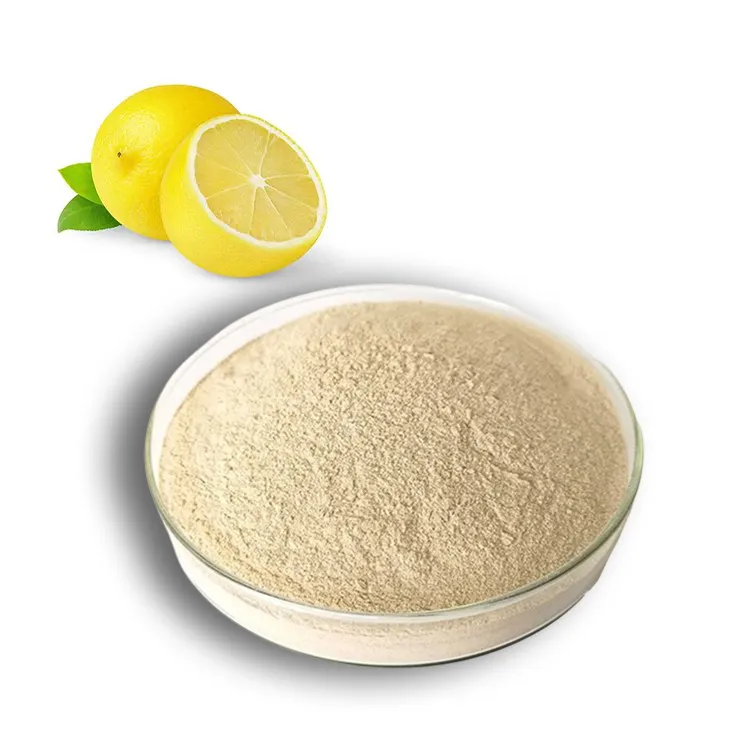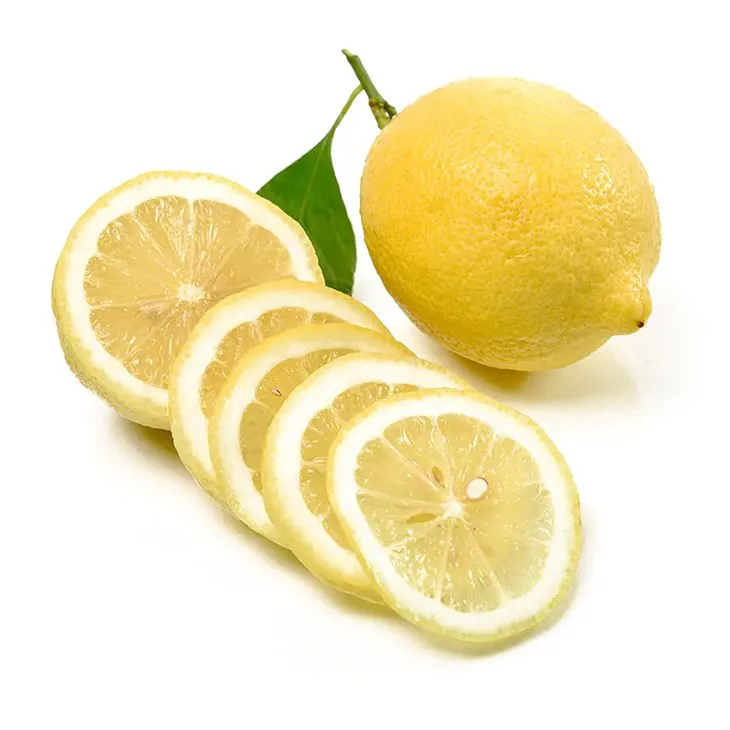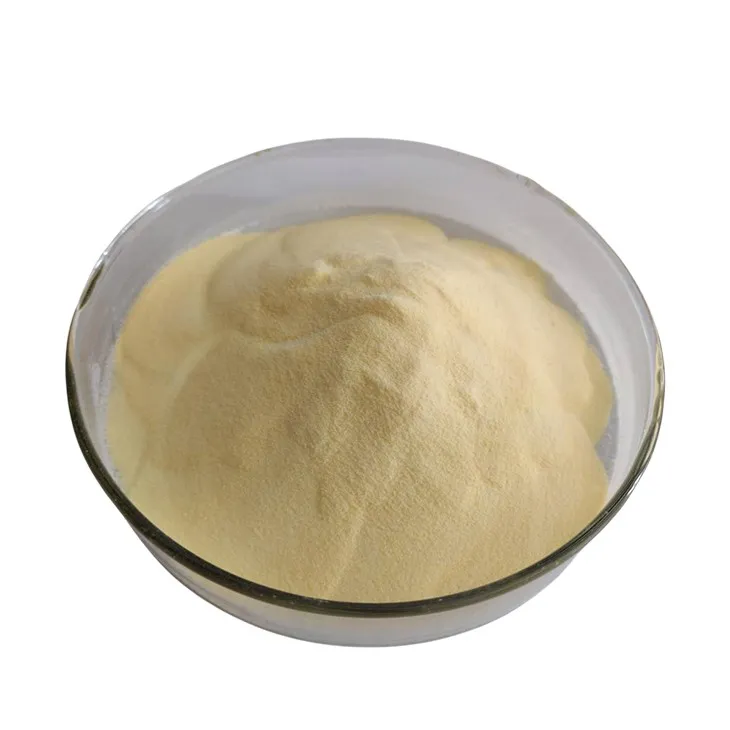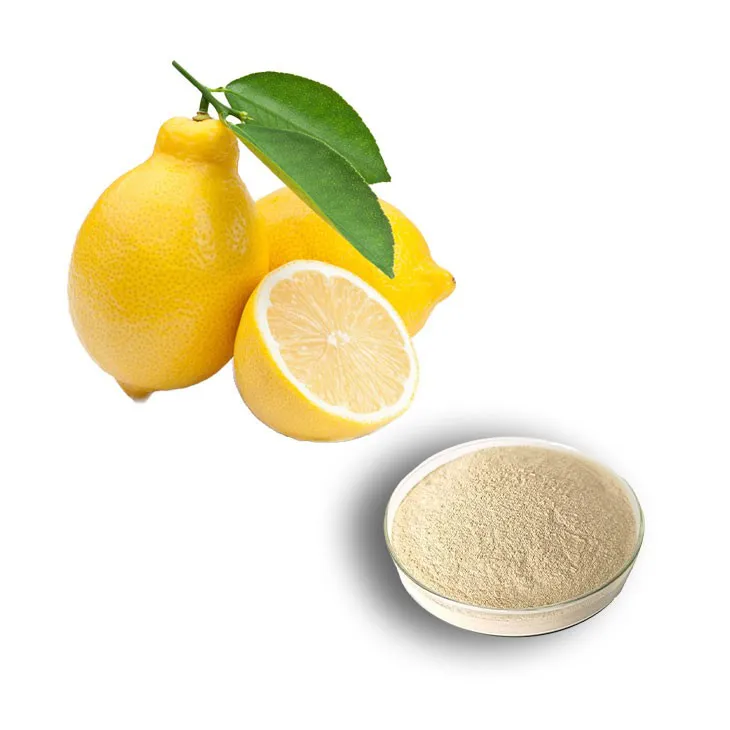- 0086-571-85302990
- sales@greenskybio.com
Benefits of lemon extract in cattle feed.
2024-11-11

1. Introduction
The livestock industry is constantly seeking ways to improve the health and productivity of animals. In recent years, natural additives such as Lemon Extract have gained attention for their potential benefits in cattle feed. Lemon Extract, derived from the fruit of the lemon tree (Citrus limon), contains a variety of bioactive compounds that can have positive effects on cows. This article will explore the numerous benefits of incorporating Lemon Extract into cattle feed.

2. Antioxidant Properties
2.1 Cellular Protection
Lemon extract is rich in antioxidants, which play a crucial role in protecting the cells of cows. Oxidative stress can occur in cows due to various factors such as environmental stressors, infections, and metabolic processes. Antioxidants in lemon extract can neutralize free radicals, which are highly reactive molecules that can damage cells. This protection is essential for maintaining the overall health of cows.
2.2 Health and Immunity
By reducing oxidative damage, the antioxidant properties of lemon extract can also enhance the immune system of cows. A healthy immune system is necessary for cows to resist diseases and infections. For example, antioxidants can help prevent damage to immune cells, allowing them to function properly. This can lead to a decrease in the incidence of diseases in cattle herds, reducing the need for antibiotics and other medications.

3. Regulation of Rumen Microbiota
3.1 Importance of Rumen Microbiota
The rumen is a crucial part of a cow's digestive system, and it is home to a complex community of microorganisms known as the rumen microbiota. These microorganisms play a vital role in breaking down feed and converting it into nutrients that the cow can absorb. A balanced rumen microbiota is essential for optimal digestion and nutrient utilization in cows.
3.2 How Lemon Extract Affects Rumen Microbiota
Lemon extract has the potential to regulate the rumen microbiota in several ways. First, it may contain compounds that can selectively promote the growth of beneficial bacteria in the rumen. For example, certain flavonoids in lemon extract may act as prebiotics, providing a food source for beneficial bacteria such as Lactobacillus and Bifidobacterium. Second, lemon extract may also have antimicrobial properties that can help control the growth of harmful bacteria in the rumen. This can lead to a more balanced and healthy rumen microbiota, resulting in better nutrient absorption.

4. Nutrient Absorption
4.1 Improved Digestion
As mentioned above, the regulation of the rumen microbiota by lemon extract can lead to improved digestion. When the rumen microbiota is in a balanced state, it can more efficiently break down complex carbohydrates, proteins, and fats in the feed. This means that cows can extract more nutrients from their feed, which can have a positive impact on their growth, milk production, and overall health.
4.2 Specific Nutrients
Lemon extract may also directly affect the absorption of specific nutrients. For example, it may enhance the absorption of minerals such as calcium and phosphorus, which are important for bone health and milk production in cows. Additionally, it may improve the absorption of vitamins, such as vitamin A, which is essential for vision and immune function in cows.

5. Impact on Milk and Beef Quality
5.1 Milk Quality
One of the potential benefits of adding lemon extract to cattle feed is an improvement in milk quality. The unique compounds in lemon extract may be transferred to the milk, adding a distinct flavor. This can be appealing to consumers who are looking for products with a unique taste. In addition, the antioxidant properties of lemon extract may also help to preserve the quality of milk by reducing lipid oxidation, which can cause off - flavors and a shorter shelf - life.
5.2 Beef Quality
Similarly, lemon extract may also have an impact on beef quality. The flavor compounds in lemon extract may be deposited in the muscle tissue of cows, resulting in a more flavorful beef product. This can be a significant advantage in the highly competitive meat market. Moreover, the antioxidant effects of lemon extract may help to maintain the color and freshness of beef, reducing the formation of metmyoglobin, which can cause discoloration and a decrease in quality.
6. Economic Benefits
6.1 Increased Market Value
The improvement in milk and beef quality due to the use of lemon extract can lead to an increased market value of these products. Consumers are often willing to pay more for products that have a unique flavor and high quality. This can result in higher profits for farmers and ranchers. For example, if a dairy farm can produce milk with a distinct and appealing flavor due to the addition of lemon extract, it may be able to command a higher price in the market.
6.2 Cost - Savings
In addition to increased revenue, the use of lemon extract in cattle feed may also lead to cost - savings. As mentioned earlier, the antioxidant and microbiota - regulating properties of lemon extract can help to improve the health of cows, reducing the need for medications and veterinary care. This can significantly reduce the production costs associated with raising cattle.
7. Dosage and Administration
7.1 Determining the Appropriate Dosage
The appropriate dosage of lemon extract in cattle feed will depend on several factors, such as the age, weight, and health status of the cows. It is important to conduct proper research and consult with veterinarians or animal nutritionists to determine the optimal dosage. Generally, it is recommended to start with a low dosage and gradually increase it while monitoring the response of the cows.
7.2 Administration Methods
Lemon extract can be administered in various ways. It can be added directly to the feed, either in a liquid or powder form. Another option is to mix it with water and administer it as a drink. It is crucial to ensure that the lemon extract is evenly distributed in the feed or water to ensure that all cows receive an appropriate amount.
8. Safety Considerations
8.1 Potential Allergens
Although lemon extract is generally considered safe for use in cattle feed, there may be some potential allergens present. Some cows may be allergic to certain components of lemon extract, such as citrus proteins. It is important to monitor the cows for any signs of allergic reactions, such as skin rashes, respiratory distress, or digestive problems. If an allergic reaction is suspected, the use of lemon extract should be discontinued immediately.
8.2 Interaction with Other Feed Components
Lemon extract may interact with other components in the cattle feed. For example, it may affect the absorption or effectiveness of certain medications or supplements. It is essential to be aware of these potential interactions and adjust the feed composition accordingly. Additionally, it is recommended to conduct compatibility tests before introducing lemon extract into the feed on a large scale.
9. Conclusion
In conclusion, the use of lemon extract in cattle feed offers numerous benefits. It has antioxidant properties that protect the cells of cows, regulates the rumen microbiota for better nutrient absorption, and can improve the quality of milk and beef, leading to increased market value. However, proper dosage, administration, and safety considerations are crucial to ensure the effectiveness and safety of using lemon extract in cattle feed. With further research and proper implementation, lemon extract has the potential to be a valuable addition to cattle feed in the livestock industry.
FAQ:
Q1: How does lemon extract protect cow cells?
Lemon extract contains antioxidants. These substances can neutralize free radicals in the body of cows. Free radicals are unstable molecules that can cause oxidative stress and damage to cells. By counteracting these free radicals, the antioxidant properties of lemon extract help protect the cells of cows from damage.
Q2: Can lemon extract improve the digestion of cows?
Yes, it can. Lemon extract has the potential to regulate the rumen microbiota. The rumen is an important part of a cow's digestive system. A balanced and healthy rumen microbiota is crucial for better nutrient absorption. By regulating the rumen microbiota, lemon extract can promote better digestion and nutrient absorption in cows.
Q3: In what way does lemon extract increase the market value of cow products?
Lemon extract might add a unique flavor to the milk or beef. Consumers are often attracted to products with unique and pleasant flavors. This can make the milk and beef from cows fed with lemon extract more desirable in the market, thus increasing their market value.
Q4: Are there any side effects of adding lemon extract to cow feed?
Currently, there is no evidence indicating significant side effects. However, like any feed additive, it should be used in appropriate amounts. Excessive amounts may potentially disrupt the normal physiological functions of cows. More research is still needed to fully understand all possible effects.
Q5: How much lemon extract should be added to cow feed?
The appropriate amount of lemon extract to be added to cow feed depends on various factors such as the age, weight, and overall health of the cows. It also depends on the composition of the existing feed. Generally, it is recommended to start with a small amount and gradually increase while closely monitoring the cows' health and performance. Veterinary guidance is also very important in determining the proper dosage.
Related literature
- The Role of Natural Extracts in Livestock Feed: A Focus on Lemon Extract"
- "Antioxidant Effects of Lemon Extract in Ruminant Nutrition"
- "Lemon Extract and Its Impact on the Quality of Cattle -Derived Products"
- ▶ Hesperidin
- ▶ citrus bioflavonoids
- ▶ plant extract
- ▶ lycopene
- ▶ Diosmin
- ▶ Grape seed extract
- ▶ Sea buckthorn Juice Powder
- ▶ Beetroot powder
- ▶ Hops Extract
- ▶ Artichoke Extract
- ▶ Reishi mushroom extract
- ▶ Astaxanthin
- ▶ Green Tea Extract
- ▶ Curcumin Extract
- ▶ Horse Chestnut Extract
- ▶ Other Problems
- ▶ Boswellia Serrata Extract
- ▶ Resveratrol Extract
- ▶ Marigold Extract
- ▶ Grape Leaf Extract
- ▶ blog3
-
High purity olive leaf extract
2024-11-11
-
Lavender oil extraction method
2024-11-11
-
100% organic virgin sea buckthorn fruit oil
2024-11-11
-
Lotus leaf extract powder factory in China
2024-11-11
-
China aged garlic extract supplier
2024-11-11
-
Deer antler extract powder manufacturer
2024-11-11
-
Saw palmetto extract vs whole herb
2024-11-11
-
Okra Extract
2024-11-11
-
Garcinia Cambogia Extract
2024-11-11
-
Peppermint Oil
2024-11-11
-
Carrageenan Extract Powder
2024-11-11
-
Stevia Extract
2024-11-11
-
Acai Berry Extract
2024-11-11
-
White mustard seed extract
2024-11-11
-
Hops Extract
2024-11-11
-
Fig Extract
2024-11-11
-
Polygonum multiflorum extract
2024-11-11





















